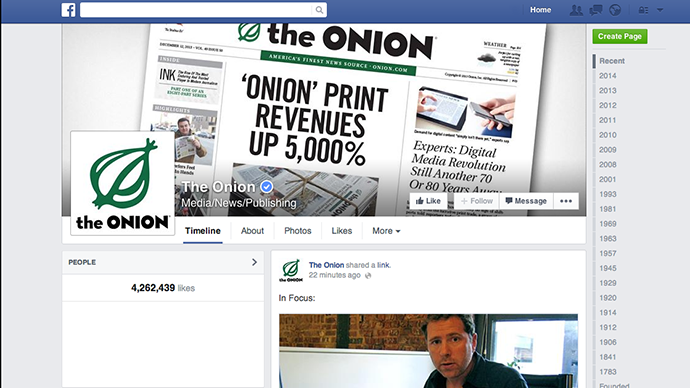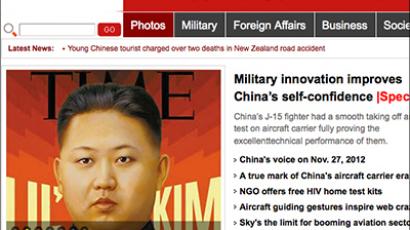New Facebook ‘satire’ tag to help users understand Onion-style articles aren’t real

Facebook is to introduce a new “satire” tag to mark articles written by parody news sites, such as The Onion, to help unaware users understand that they are not a reflection of reality.
“We are running a small test which shows the text '[Satire]'
in front of links to satirical articles in the related articles
unit in News Feed,” a Facebook spokesperson told
ArsTechnica.
“This is because we received feedback that people wanted a
clearer way to distinguish satirical articles from others in
these units.”
The new tag will highlight stories after a user has clicked
through to a link in their news feed. The related content which
appears after a link is clicked will be marked out with the
[satire] tag.
Other satirical sites have been marked out with similar tags.
While a full list of satirical sites to be marked out has not yet
been provided, The New Yorker’s Borowitz Report has frequently
been mistaken as a real news source in the past, as has Buzzfeed
parody Clickhole and UK site the Daily Mash.
The move comes after repeated cases of people mistaking the
articles for real news stories.
In July, Science News accidentally ran a story about
schadenfreude in children that included Onion content, prompting
them to change the story: “This article was amended on July
24, 2014, to delete a sentence that unintentionally linked to a
parody article. Science News regrets the error but does think the
parody article is pretty funny.”
A further piece about a 9,600-mile-long rollercoaster or
“endurance coaster” was also taken at face value by
commenters on a website called “Literally Unbelievable”
which documents bizarre face-value responses to Onion content.
In November 2012, China’s People’s Daily also made headlines when
North Korean leader Kim Jong-un was declared the Sexiest Man
Alive for 2012 by The Onion, prompting the Chinese Communist
Party’s official newspaper to reprint quotes about his
“devastatingly handsome, round face, his boyish charm,”
and only later removing the article from its website.














